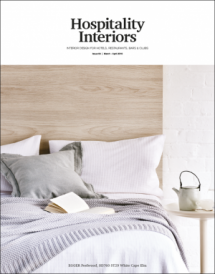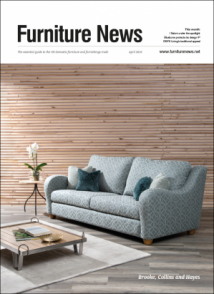As wide belt trends continue to develop across the furniture and joinery sector, Mirka is seeing in the wide belt arena and how businesses are benefiting from them.
“In the furniture and joinery sector there has been a focus on fine sanding in recent years, which has seen a move away from coarser abrasives such as the P16, P24 and P36 grit that used to be a staple of the sanding process. There was then a move to businesses using P40, P50 and P60 grit for a time, however, we are now seeing businesses starting to sand from finer grits such as P80 and P100. This is due to woodworking machinery evolving and continually improving, and, because the cost of wood has increased so much, no-one can afford to create wood-dust with P16/24/36.

Finer grits such as P150, P180 and P220 are becoming more prominent in the sanding process due to the types of panels and boards that are being employed including MDF, HDF, Chipboard and laminated boards. Due to their construction, there is less or no need for the coarser grits and hard sanding to achieve the result the customer is looking for.
There is also a focus on ensuring a consistent and high-quality finish. With new substrates and coating systems, very smooth surfaces are achieved, creating a risk for visible micro dentations that the end user wants to eradicate, so businesses are looking for alternative abrasives apart from paper, film and cloth that can do this. One option is “soft-touch” abrasives and like any good business, our R&D team is doing the work behind the scenes to ensure the customer has access to the products that meet Mirka’s high standards and the needs of the end user.

Sustainability is also key. This push comes in the form of the EU wanting sanding tools and abrasives to be long lasting. To address sustainability, Mirka is constantly investing in R&D to ensure its customers, whether they are using wide belts or other abrasives from our product portfolio, have access to products that have a long lifespan and provide a consistent cut from the first use to the last.
Mirka’s vision over 15 years ago was to research and invest in sustainable technology, and, as a result, new products have been launched to meet the upcoming EU Green Deal as well as for belt sanding. This investment is here to stay and will lead to customers moving away from the ‘cheap’ abrasives, which are typically constructed from lesser quality raw materials and affect the quality of the finish and the time taken to complete a job.

There are also two distinct benefits a long-lasting product offers end users. The first is a cost saving on their abrasives spend. This is highlighted by our experienced technical experts, who have noticed that businesses are starting to realise that even if initially there may be a cost saving gained by purchasing a cheaper product, this will soon be outweighed by having to use additional products. The second is efficiency. An example is a reduction in the downtime of the wide belt machines to change the belt, which may affect production output by a few per cent per day, which over a long period of time adds up. On top of the reduced downtime, there are monetary savings because the business using the wide belt machine is not having to spend significant money on electricity when it is not in use.
Another trend is wide belt machines are becoming wider. Through the years we have seen the growth from 910mm to1010mm to1350mm to1380mm to1400mm. But now, due to the wider use of boards and panels, 1400+mm machines are being requested by huge manufacturers and small businesses alike.
These trends are here to stay and Mirka will ensure it stays in step with them by constantly communicating with the end user to understand their needs and requirements. This information will then be collated and passed to the R&D team, which will help them develop innovative, durable products that stand the test of time.”










